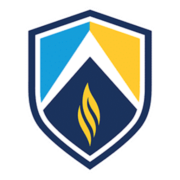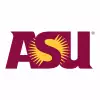Nursing in Arizona
Schools, Licensure and Requirements
The state is home to 49 nursing schools that cater to various educational pathways, from entry-level certifications to advanced degrees. These institutions include community colleges, universities, and specialized nursing schools, providing students with options to obtain credentials such as Licensed Practical Nurse (LPN), Associate Degree in Nursing (ADN), and Bachelor of Science in Nursing (BSN).
Prominent institutions for nursing education in Arizona include Arizona State University (ASU), the University of Arizona, and Northern Arizona University (NAU). ASU is particularly well-regarded for its comprehensive BSN and MSN programs, offering students robust clinical experiences and research opportunities. The University of Arizona also stands out with its accelerated BSN program, which is ideal for individuals seeking a fast-track entry into the nursing profession. NAU, known for its focus on rural health, offers a range of nursing programs, including an RN-to-BSN pathway designed to help registered nurses advance their education and career prospects.
Community colleges, such as Maricopa Community Colleges and Pima Community College, play a crucial role in providing accessible and affordable nursing education. These schools offer ADN programs that are popular for their lower cost and shorter duration, enabling students to enter the nursing workforce more quickly. Additionally, LPN programs are available across several institutions, providing a quicker entry point into the nursing field.
The cost of nursing education in Arizona varies widely depending on the institution and the level of the program. For example, community college ADN programs are typically more affordable, with tuition ranging from $3,000 to $10,000 per year. In contrast, BSN programs at universities may cost between $20,000 and $50,000 per year, depending on residency status and the specific institution. Prospective students should also consider additional expenses such as textbooks, uniforms, and clinical fees.
The nursing workforce in Arizona is experiencing significant demand, driven by population growth and an aging population that requires increased healthcare services. The state, part of the Nurse Licensure Compact (NLC), allows nurses to practice in multiple states with a single license, which is an added benefit for those entering the field. Despite this, Arizona has reported shortages in nursing professionals, particularly in rural areas, where access to healthcare is more limited.
In terms of salaries, registered nurses (RNs) in Arizona earn a median annual salary of approximately $91,430, with hourly wages around $44. Licensed Practical Nurses (LPNs) earn a median annual salary of $66,720, or about $32 per hour. Advanced practice nurses, such as Nurse Practitioners, command higher salaries, with median earnings of $132,560 annually. These figures reflect the competitive nature of nursing compensation in Arizona, which is aligned with the national average but varies depending on experience, specialization, and location within the state.
Quick Stats about Arizona
Top Nursing Schools in Arizona
These are the highest-performing nursing schools in Arizona for 2025, ranked by their students' success on the NCLEX-RN exam. If you're choosing where to study, these programs have proven track records of preparing graduates to pass on their first attempt. See how we calculate rankings.
Arizona's NCLEX-RN Pass Rate vs. National Average
Compare Arizona's NCLEX-RN pass rates to the national average over the years, including the number of students who took the exam.
Arizona’s first time NCLEX pass rates have usually run above the U.S. average, often by about 2 to 8 points. The advantage was especially clear in 2012 (about 94% vs 90% nationally) and again in 2014 (about 90% vs 82%). Arizona’s weaker relative years were more about narrowing of the gap than falling behind: in 2016 and 2017 the state stayed close to national results, and even in 2022 Arizona remained several points higher (about 85% vs 80%), despite being one of the state’s lowest years in this series.
Over time, Arizona shows a high baseline with periodic dips rather than a long, steady slide. After strong results in 2018 to 2020 (about 92% to 93%), pass rates dropped in 2021 and 2022 (about 87% then 85%) while the number tested rose sharply, then rebounded in 2023 and 2024 (about 90% then 94%). That recent recovery suggests volatility tied to cohort and training conditions, not a persistently weak statewide profile.
Context from board and NCSBN discussions commonly points to factors not visible in these totals: expansions in enrollment and new program growth can strain clinical placements and faculty capacity, and state reviews often highlight large performance differences between programs, with a small number of underperforming schools pulling down the statewide rate when volumes rise. NCSBN also documented pandemic era clinical disruption and readiness gaps that affected 2021 to 2022 outcomes in many states. For prospective students in Arizona, the data support confidence in the state’s overall outcomes, but they also imply that program choice matters because statewide strength can coexist with program level variability.
Arizona's NCLEX-PN Pass Rate vs. National Average
Compare Arizona's NCLEX-PN pass rates to the national average over the years, including the number of students who took the exam.
Arizona’s first-time NCLEX pass rates have been consistently higher than the national average across 2010 to 2024, usually by about 5 to 12 points. The gap was especially large in the early 2010s, for example 2012 (about 96.7% AZ vs 84.3% national) and it remained favorable even in weaker years like 2022 (about 89.0% vs 79.9%). There is no year in this series where Arizona falls below the national benchmark, which suggests the state’s outcomes are not merely tracking national swings.
Over time, Arizona shows a high-performing but somewhat variable pattern rather than a steady climb. After a dip from the mid-90s down to the high-80s by 2015, rates rebounded into the low-to-mid 90s through 2020. The most recent five years show a temporary trough aligned with national softness in 2021 to 2022 (about 90.0% and 89.0%), followed by a strong recovery in 2023 to 2024 (about 94.7% then 93.8%), indicating the state is not “stuck” low but does experience cyclical drops.
Beyond the numbers, NCSBN and state board discussions have repeatedly tied year-to-year NCLEX movement to changes in the exam and in candidate readiness, including shifts in the passing standard and the 2023 transition to Next Generation NCLEX, which altered item style and required different preparation. Boards also commonly report that outcomes can swing when cohorts include more repeat testers or when program growth strains clinical placements and experienced faculty, factors not visible in the dataset. For prospective students in Arizona, the data supports confidence in statewide performance, but it also means program-level quality and support matter, especially during exam-transition periods when weaker preparation can show up quickly.
Browse Programs by Type
Browse all nursing programs available in Arizona, organized by degree type. Click any program to see schools offering that program with detailed information for easy comparison.
Entry Level Programs
Bridge Programs
Accelerated Programs
Masters Programs
Doctoral Programs
Nursing Scholarships for Arizona Students
The amount of the scholarship is to be $600.00 annually to not less than a second year student nurse who is enrolled in an accredited institution In Arizona awarding a degree as a Registered Nurse. The immediate family members of a Veteran will be given first preference. Applicant must be a citizen of the United States and resident of Arizona for at least one (1) year.
Applications for this scholarship must be sent to the American Legion Auxiliary Department of Arizona Past Presidents’ Parley Chairman by May 15th preceding the term to be commenced in the fall. Money awarded will be paid at the beginning of the school year to the institution where applicant is enrolled in the nursing program.
Arizona State Board of Nursing
1740 West Adams, Suite 2000
Phoenix, AZ 85007
Mailing Address
1740 West Adams, Suite 2000
Phoenix, AZ 85007
Phone: 602.771.7800
Fax: 602.771.7888






























